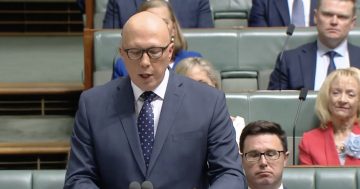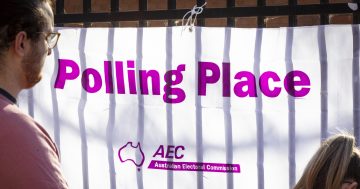
Data on Demand managing director Justin Lazic says polling isn’t trending conservative. Photo: Supplied.
Last year’s Indigenous Voice to Parliament referendum result doesn’t mean Australia is flocking to the conservative side of politics, according to one political analyst who has spent the past three months scrutinising voting trends across the country.
Research from Data on Demand, a Canberra-based data analytics and political consultancy firm, shows that a thorough study of all available polling results from shortly after the October referendum and every week since reveals the Voice outcome was more specific than some political pundits are suggesting.
Data on Demand managing director and head of research Justin Lazic said conservative voters and politicians would be foolish to draw anything wider from the referendum’s result than the answer to that poll’s question.
He said the immediate media coverage about the perceived impact the Voice had on voting intentions should be more readily compared to the coverage of Anthony Albanese’s gaffe in the first week of the 2022 election campaign, in that it caused a brief shock but nothing to disturb the long-run trend.
Mr Lazic – whose own political background is on the conservative side but whose firm operates on a non-aligned basis – said he had aggregated polling results from companies as diverse as Roy Morgan, Newspoll, Freshwater, Essential, Yougov and Redbridge, only to conclude that Australian voters are following an international trend towards more progressive politics.
“This data demonstrates that Australia is entering the global mega-city phase of its development and is showing a permanent and meaningful slant towards progressive voting intentions,” he said.
“Like other G20 and OECD economies, the larger urban areas of Australia are reflecting the high priority the public places on the delivery of public services, social justice, economic redistribution and climate change.
“This is not a temporary trend.”
According to this analysis, the aggregated primary trend between November and January is 36.6 per cent vote to the Liberal National Party, 44.5 per cent to Labor and Greens, and 18.9 per cent other.
Based on the preference flows of the 2022 federal election, the Labor Party is on track to retain its majority in the Lower House along with an expansive, progressive crossbench.
Analysis of December’s federal polling, with a state-by-state breakdown, suggests Queensland results significantly drive the Coalition’s national two-party-preferred vote, while elsewhere, voters are trending towards the ALP and further left to the Greens.
Credible progressive independents are also faring well in voting trends.
There is a high percentage of undecided allocation of preferences – one poll suggesting it currently stands at 19 per cent – that would traditionally favour an incumbent government.
State voting intentions are strongly skewed to the ALP in WA, South Australia, Victoria and NSW. Again, only Queensland shows a lead for the Coalition.
“The days of voters in states voting differently between state and federal are largely over, as these figures are overlapping significantly because the issues are the same everywhere,” Mr Lazic said.
“Put another way, whilst the Coalition has a state and federal lead in Queensland voting intentions, it doesn’t have a provable lead in any other state.
“All of this data is based on post-referendum analysis and this indicates to me that the referendum result does not directly translate to voting intentions.
“The Voice result was about exactly that and nothing more.”
Some Coalition MPs and conservative commentators called for the Prime Minister to resign following the referendum’s result.
And even some inside the ALP told Mr Albanese to change focus and get back to policy basics, which he seems to have been trying to do, with varying degrees of success.
But Data on Demand research suggests the Voice result will not play out on the wider political battlefield no matter how hard some players might wish it to do.
Original Article published by Chris Johnson on Riotact.










